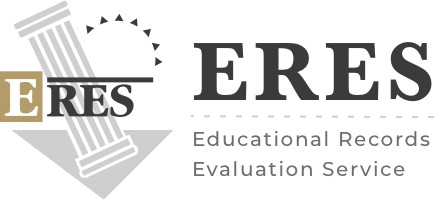Blog
Comprehensive Guide: Types Of Master’s Degrees In Nursing In The USA

The healthcare industry is constantly evolving, and with each forward step, the demand for skilled nursing professionals is also increasing. One of the most sought-after career paths for seasoned nurses is getting a masters degree in nursing.
This certification broadens their knowledge base and opens doors to specialized roles within the healthcare system.
The masters degrees in nursing are diverse, each catering to different interests and career goals. They are pivotal in preparing nurses to meet today's healthcare landscape's complex challenges and lead with expertise, compassion, and efficiency.
Through this blog post, we'll explore the various types of masters degrees in nursing available in the USA and try to understand how they contribute to improving healthcare delivery and patient outcomes.
Common Types of Master Degrees in Nursing
Understanding the distinctions between the different types of masters degrees in nursing is crucial for making informed career decisions. Let's break down some common masters degrees in nursing:
A. Master of Science in Nursing (MSN)
- The MSN is a graduate-level degree that provides nurses with advanced skills and knowledge. This degree bridges the gap between a Bachelor’s degree in nursing and higher-level healthcare positions.
- With an MSN, nurses can aspire to roles such as nurse practitioner, clinical nurse specialist, or nurse administrator, to name a few.
B. Master of Nursing (MN)
- Unlike the MSN, the Master of Nursing (MN) is for those with a non-nursing bachelor’s degree who want to transition into nursing.
- After completing an MN, graduates are usually eligible to take the NCLEX-RN exam to become Registered Nurses.
C. Master of Science in Nursing Administration (MSN Admin)
- The MSN Admin focuses on the managerial and administrative aspects of nursing. It equips nurses with the skills necessary to oversee nursing departments or healthcare facilities.
- Graduates often move into positions like nurse manager, director of nursing, or chief nursing officer, crucial for ensuring smooth operations and high-quality patient care within healthcare establishments.
D. Master of Science in Nursing Education (MSN Ed)
- The MSN in Education is designed for those who aim to teach future nurses. It provides the knowledge and skills required to teach nursing at colleges, universities, or healthcare institutions.
- Individuals with an MSN Ed can pursue careers in nursing education as instructors, clinical educators, or academic advisors. They play a vital role in shaping the future of the nursing profession.
Each nursing degree offers a unique pathway to enriching one’s career while contributing positively to the healthcare landscape.
Specialized Masters Degrees in Nursing
If you dive a little deeper into the nursing profession, it reveals a variety of specialized masters degrees. These nursing degree enable practitioners to focus on specific areas of healthcare, contributing to better patient care and personal career advancement.
Let’s explore some of these specializations:
A. Nurse Practitioner (NP):
- Advanced practice registered nurses are healthcare professionals who provide primary or specialized medical services. They have a higher level of education and training than registered nurses and can work independently or alongside physicians.
- Specializations within this field include Family NP, Pediatric NP, Adult-Gerontology NP, and others, allowing NPs to focus on the care of particular patient groups.
- Career opportunities for NPs are abundant. They can work in clinics, hospitals, private practices, and many other settings, often with autonomy in diagnosing and treating patients.
B. Clinical Nurse Specialist (CNS):
- Clinical Nurse Specialists are experts in specific practice areas, such as gerontology, oncology, or psychiatry. Their expertise contributes to better patient outcomes and healthcare system improvement.
- As a CNS, you can work in various healthcare settings, providing direct patient care, mentoring nursing staff, and leading initiatives to improve care standards.
C. Nurse Anesthetist:
- Nurse Anesthetists specialize in administering anesthesia to patients undergoing surgery or other medical procedures. They ensure patient comfort and safety.
- Individuals can work in surgical centers, hospitals, or dental offices with this specialization. The career is known for its high earning potential and significant responsibility.
D. Nurse Midwife:
- Nurse Midwives are registered nurses with advanced training in women’s reproductive health and childbirth. They provide essential care through pregnancy, labor, and the postpartum period.
- Career opportunities for nurse midwives extend beyond birthing centers, including hospitals, private practices, and community health clinics. They also play a critical role in providing gynecological care and family planning services.
These specialized nursing degrees allow individuals to hone their expertise, pursue their passions, and make meaningful contributions to patient care and the broader healthcare community.
How Does Educational Credential Evaluation Help In Getting A Masters Degree In Nursing For International Students?
Credential evaluation services are pivotal for international students aiming for a Master's Degree in Nursing in the U.S. They assess the equivalency of foreign education to U.S. standards, aiding in:
Admission Eligibility:
Educational credential evaluation verifies the authenticity and equivalency of foreign qualifications, helping admissions offices ascertain if applicants meet the entry requirements.
Credit Transfer:
By evaluating course content, credential evaluation services for nursing assist in determining credit transfers from international institutions, potentially shortening the program duration and cost.
Licensure and Certification:
A credential evaluation is often required for licensure and certification in the U.S., ensuring that foreign education meets the set standards.
Career Advancement:
Employers and professional bodies may require credential evaluation to understand an international candidate’s educational background, aiding in job placement.
Professional Development:
It can facilitate membership in professional organizations or the attainment of advanced certifications.
Educational Planning:
Helps in planning the educational path efficiently, ensuring students enroll in the correct courses needed for their masters degree in nursing.
Awareness and Preparation:
Provides better awareness and preparation for academic expectations in the U.S., aiding in informed decision-making regarding education and career in nursing.
Through these services, international students can navigate the admissions process, transfer credits, attain licensure, and plan their educational and career pathways more effectively.
Final Words
Knowing about the various types of masters degrees in nursing not only broadens your professional horizon but significantly contributes to the healthcare community.
Each step taken towards further education is a step towards a fulfilling and impactful career, promising a rich blend of personal satisfaction and the noble service of care.
Start Now
ERES
Educational Records Evaluation Service helps Non-US educated individuals to receive their US equivalences with our credential evaluation reports.
Services
Contact us
Tue - Fri: 10:00 to 16:00 ( PST )
4773 Mangels Blvd, Fairfield, CA 94534, USA.
© 2024 Educational Records Evaluation Service. All rights reserved.













